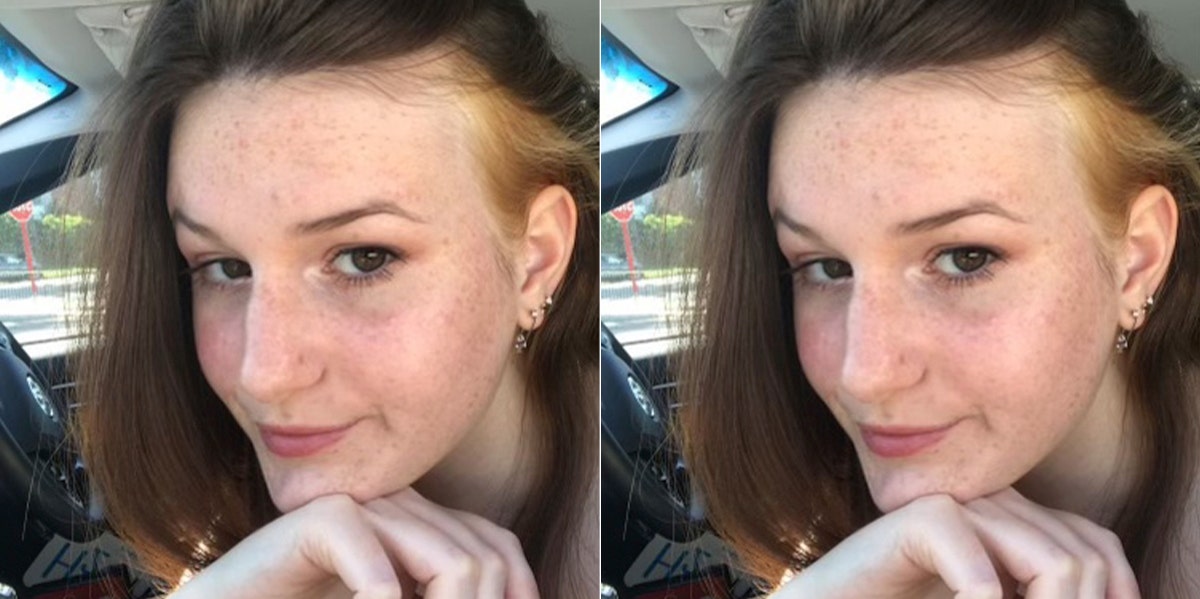I Came Out As Bisexual At An All-Girls School — And It Was Nothing Like The Movies
My experience wasn't anything like Love, Simon.
 Kat Mackay
Kat Mackay I've always been used to "different." As a kid growing up in Los Angeles, I learned quickly that people are weird — and to be clear, 'weird' is not a bad thing.
In LA, the standard corner bakery is gluten-free and vegan and people carry around sage and rose quartz like they're normal everyday possessions. Even my Midwestern-born dad eventually got used to paying eight dollars for a smoothie because it's supposed to realign his chakras.
Los Angeles is the manic pixie dream girl of American cities: she’s quirky and pretty and does nothing for the plot — oh, and she’ll mess up your life.
Given that LA is fairly progressive, I figured most polite society would have gotten over homophobia by 2021. Alas, that was not the case — and I learned that pretty quickly when I came out as bisexual in middle school.
I went to an elite all-girls school in LA from 2014-2020. Every day I put on a polo shirt and khaki skirt, eventually graduating to a black skirt once I got to high school. (Inevitably, I was told my skirt was "scandalously" short — at an all-girls school where the only men are teachers — but that's another story.)
So, I wore pants, and girls at my school called me "gay" — just for wearing pants. I mean they weren't wrong, but since when was being gay a bad thing?
I came out as bisexual at 13 years old. There wasn't a huge revelation or proclamation like most coming-out movies depict. It wasn't a huge deal to me. However, the fallout from a simple fact — I'm Kat and I'm bisexual — was met with outrage, aggression, and passive-aggressive homophobia from my school.

In eighth-grade English class, I decided to write about being bisexual for a vignette project that we would eventually share out loud with the rest of the class.
When I handed my teacher the rough draft of my vignette she said, "Honey, maybe you should write about something else."
I was confused. From what I understood, the assignment was to be open and honest about a life experience — and that's what I did.
"Why should I write about something else?" I asked the teacher.
To which she responded, "I think this would be a little abrasive for the other girls in your class."
Apparently, my sexuality was too "harsh" for the other girls in my class, and sharing a critical aspect of my identity meant I was "showing little concern for the feelings of others."
The entire awkward exchange with my English teacher felt like a big "stop being gay at school" sign.
From then on, I didn't talk about my sexuality in class — ever. I came out to a few friends at school but disappointingly received various bi-phobic responses.
The first girl I told responded with, "I hope you don't have a crush on me." (A not-so-great way to respond to someone pouring out their biggest secret to you.)
The second girl I told said, "Now that I know you're bisexual, I don't think we can be friends." (Straight up homophobia.)
I tried to explain to her that nothing about me had changed; I was still Kat. She didn't get it, though. Instead, she went to all our friends and told them all I was bisexual — definitely not the coming out I wanted. It was devastating.
The rest of my class saw me as supporting the notion that all girls who go to all-girls schools are lesbians and distanced themselves from me. It really hurt.
I also experienced homophobia at home from my own parents. When I came out to my mom and her boyfriend, they were super-supportive. They told me they only wanted me to be happy and comfortable in my skin, which finally made me feel supported.
Yet, as soon as I asked to have a sleepover with a girl they said no and I was banned from having sleepovers with my female friends for six months. Because GOD FORBID: what if I kissed one of my friends? Or even worse, had sex with them? That was my parent's ridiculous line of thinking.
Of course, in reality, I never wanted to date any of my friends — they were just friends. (FWIW, my mom feels really bad about this decision now and regrets it, which is the only thing that matters to me now.)
The lesson for other parents from this awful experience? If your child comes out, assume that his/her friends of the same sex are just that: friends. After my mom banned my sleepovers, I felt like I couldn't talk to her about any of my friendships, much less my eventual relationships. It took a long time for that rift between us to heal and for me to feel comfortable sharing with her again.
And the lesson for my problematic school? All-girls schools — and schools in general — need to come to terms with the fact that gay and bisexual girls exist. You can't erase us and we're not apologizing. Get used to it.
Kat Mackay is a writer who covers entertainment, news, and personal essays. Find her on Instagram: @kattmackay.

